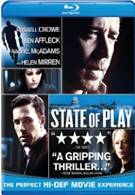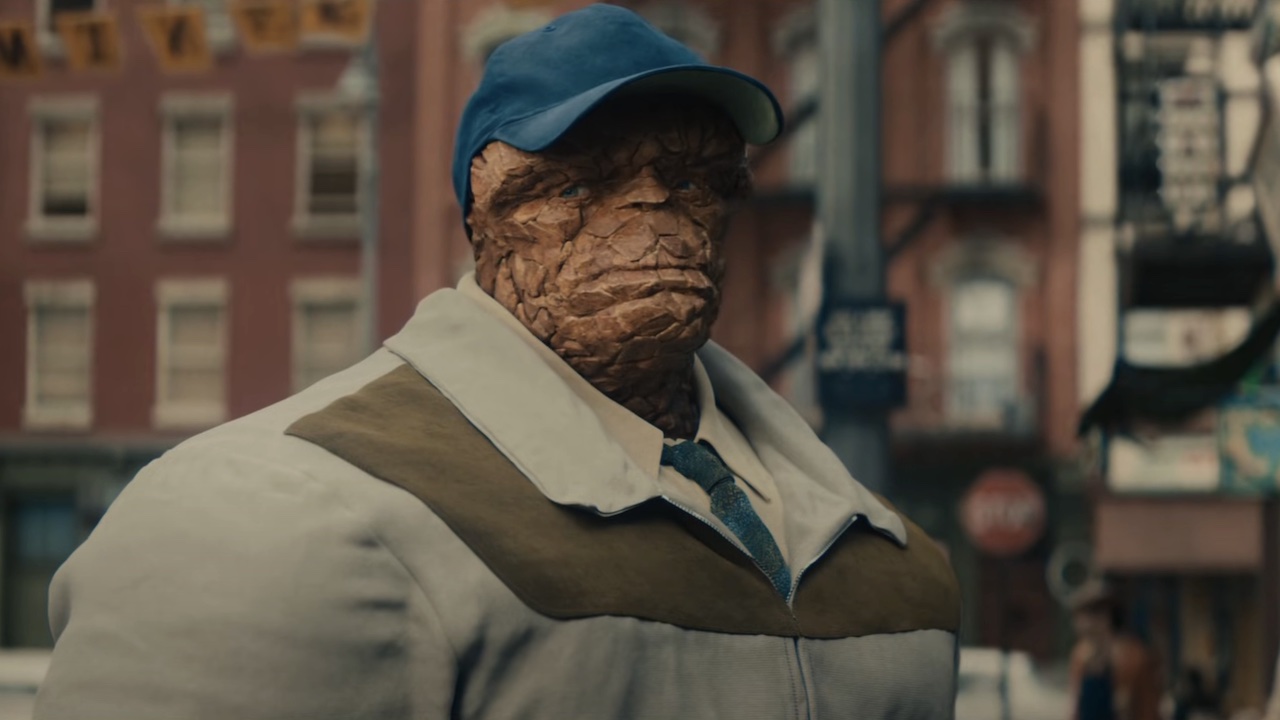Expectations are huge for a movie stuffed as tight with talent as State of Play. Just looking at the list of actors is enough to get the blood pumping, but roll in the names of the writers and director and nothing less than a spectacular display of thought-provoking, adrenaline-pumping, plot-twisting crime drama will do. That prelude of anticipation is all the more disappointing when it turns out the film peaks at glorious mediocrity. Politics and the media are long-time bedfellows, but their relationship has become more shallow and tawdry than ever thanks to the wonder of the internet. Once upon a time it didn’t matter how many people read the National Enquirer or The Sun, everyone knew them for the tabloid reportings they were. These days even the best of news institutions are reduced to tabloid-esque sound bites and blog-style reporting, reducing the art of journalism and the readership’s intellect to emotionally charged mush. This is the new real world of journalism that old-school Washington Globe investigative reporter Cal McAffrey (Russell Crowe) inhabits and loathes.
Cal’s college roommate and best friend, the now Congressman Stephen Collins (Ben Affleck), who has been leading a controversial government investigation into a private-defense contractor, lands smack dab in the middle of the whirlwind of scandal-obsessed media when his research assistant meets an untimely death in front of a Washington D.C. metro train. Suspicions that she and Collins had been having an affair begin to fly, and soon what looked like a passionate-fling-turned-suicide blossoms into a political mind game with more players than a polo match. Cal, drawn somewhat by his desire to help his friend, but mostly by his gut compulsion to find the truth, finds his ability to navigate the story’s murky waters muddled by the fact that he once had an affair with Collins’ wife (Robin Wright Penn).
For those of you keeping score, we now stand at one relevant politically charged debate, one running commentary on the state of the American media, two suicides (one political, one that turns into a homicide), a love triangle amongst best friends, two careers jeopardized by personal involvement, and two love affairs. And we’re barely a third of the way into the movie.
I haven’t even rolled in Cal’s new protégé Della Frye (Rachel McAdams), a young online reporter for the Globe. She represents everything Cal hates about reporting, but he is teamed with her for the story and must convert her into a real journalist before the movie is over. And then there’s Cal’s gutsy editor, Cameron Lynne (Helen Mirren), who oscillates between being Cal’s moral compass and riding him for not producing the sorts of sleazy angles that will sell papers and help her keep her job.
Does all of the above sound confusing? Surprisingly, it’s not. Director Kevin MacDonald (the man behind the brilliant Last King of Scotland) does a commanding job setting a steady pace while keeping the numerous characters, plot points, and their constant intertwinings nice and clean so as not to spoil any of the story’s several twists and turns. No, what drags the movie down is the sheer weight of everything he’s tried to pack into it.
The original version was a British mini-series, which, given the lengthier format, had time to explore the many wonderful facets of the spider-web story and its relevant political and social commentaries. The movie adaptation doesn’t work so well. The cinematic equivalent of Turducken, State of Play is too much stuffed into too much then stuffed with too much again. With no one (and no way) to trim it to a more manageable level, its enjoyment as a thriller takes a heavy hit.
Somehow, none of the above diminishes the solid performances in the film. Russell Crowe, usually the leading man of late, fits right back into the world of ensemble acting, matching nicely with his wide range of co-stars. Helen Mirren tackles her role, originally written for a male, with such leveled intensity that you’d swear she has a bigger pair than any other guy in the cast. Too bad some of her best lines were cut or watered down to get the movie its completely unnecessary PG-13 rating. Jason Bateman fans will relish his brief but fantastic turn as a flamboyant PR rep who doubles as a sex freak by night.
The original mini-series was a hard-hitting, award-winning success. It begs the question why it needed to be redone, much less in a time-limiting format. If it had to happen, this film is probably the top effort that could have been expected. But like the difference between a blog entry and a legitimate journalist’s article, the best hope here is that this shortened, processed version will direct viewers to the better, full-fledged original. Just because a Blu-ray disc can hold more content than a handful of DVDs doesn’t mean a studio has enough material to take advantage of all that room and capability. State of Play does the best it can with what it has, but the options are limited and often more of a distraction than an enhancement.
If you’re into picture-in-picture commentaries and in-movie fact pop-ups, you’ll enjoy the disc’s running video commentary and location descriptor. When turned on they automatically pop up in a corner of the screen to give you additional information on the particular scene in the movie.
The picture-in-picture pulls up augmented segments from the “making-of” feature. I prefer get my making-of information separately, but if you like yours doled out in tidbits within the context of the movie, this seamless option is sure to delight. The location descriptor gives details on some of the on-location sets around Washington D.C., complete with a window featuring a Google Earth clip that zooms in on the spot. Interesting if you want to visit D.C. someday and tour the film sites, but otherwise a very fringe benefit to enjoying the film.
In the extras menu, the only other offering besides the stand-alone version of “The Making of State of Play” is a handful of deleted scenes. Sadly, they don’t come with any commentary about why they were cut or why they were even filmed in the first place. It’s a disappointingly short list of offerings.
One interesting aspect to the movie was camera choice. Segments involving the investigative reports were shot with a traditional film camera, giving them a grittier flare. As a contrast, segments set on the political side of the story were filmed in digital, offering the crisper, almost unreal nature that digital delivers. The difference between the two really stands out in HD, heightening the effect for those catching this on Blu-ray instead of DVD.
All in all it’s a fairly slim package, but without any major special effects to highlight or bonus interviews to include, I suppose there’s not much more that could have been trudged up. A running commentary from director Kevin Macdonald would have been a reasonable expectation, but I guess they had to save something for the special edition.
The Fantastic Four Is Finally Debuting In The MCU, And I’m Especially Excited About How First Steps Is Delivering Another Big First For The Superhero Franchise
After Footage Of People Running In Epic Universe Went Viral, A Theme Parkgoer Got Real About What Being At Opening At Disneyland Is Like
Star Trek's Jonathan Frakes Hilariously Channeled Picard When Sharing His Thoughts On Potentially Being Digitally De-Aged If He Returns As Riker











